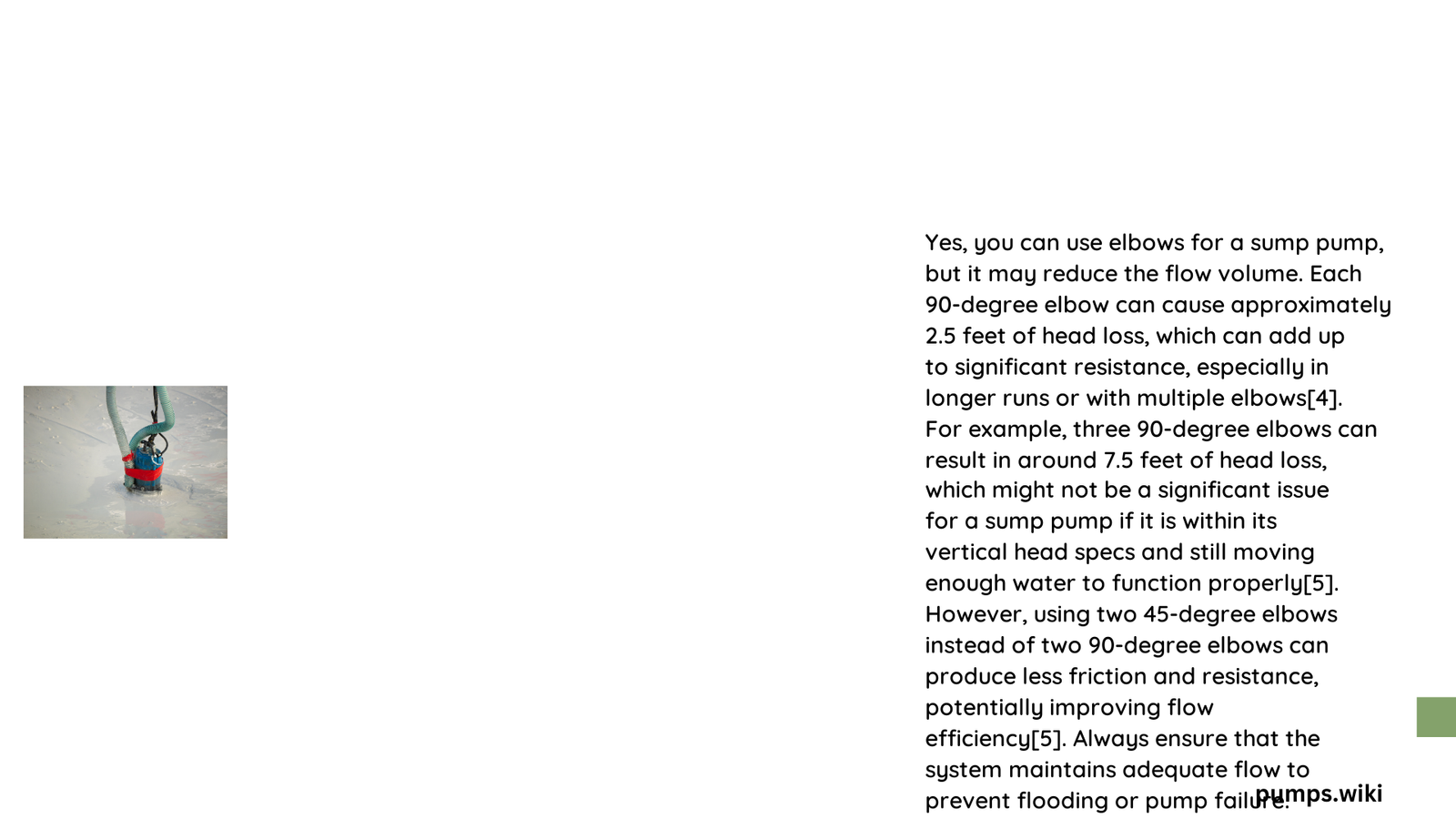Sump pump discharge lines require strategic elbow placement to ensure efficient water removal. Homeowners can indeed use elbows for their sump pump systems, but must carefully consider factors like pipe angle, friction loss, and overall system performance. Understanding the nuanced approach to elbow installation can prevent potential drainage issues and maintain optimal pump functionality.
What Are the Basic Rules for Sump Pump Elbows?
Can You Use Multiple Elbows in a Sump Pump Discharge Line?
Yes, you can use multiple elbows, but with critical considerations:
- Friction Loss: Each elbow creates additional resistance
- Recommended Limit: Minimize 90-degree elbows
- Efficiency Impact: More elbows reduce pump performance
| Elbow Type | Head Loss Equivalent | Recommended Usage |
|---|---|---|
| 45-Degree | 0.5 feet | Preferred |
| 90-Degree | 1 foot | Limited Use |
How Do Pipe Angles Affect Sump Pump Performance?
Pipe angles significantly influence water discharge efficiency:
- Vertical Alignment: Minimize sharp turns
- Gradual Curves: Use 45-degree elbows when possible
- Horizontal Routing: Keep discharge close to ground level
What Materials Work Best for Sump Pump Elbows?
Recommended materials include:
- PVC pipes and fittings
- Schedule 40 PVC recommended
- Use PVC cement for secure connections
- Ensure proper pipe diameter matching pump outlet
Technical Considerations for Elbow Installation

What Challenges Might Arise with Elbow Placement?
Potential installation challenges include:
- Increased system complexity
- Reduced pump efficiency
- Higher maintenance requirements
- Potential water flow restrictions
How Can You Minimize Discharge Line Resistance?
Strategies to reduce resistance:
- Use fewer elbows
- Select wider angle connections
- Maintain consistent pipe diameter
- Ensure smooth internal pipe surfaces
- Regular system maintenance
Professional Installation Recommendations
What Do Experts Suggest for Optimal Elbow Usage?
Professional plumbers recommend:
- Limit total head loss to less than 5 feet
- Use professional-grade fittings
- Consider system-specific requirements
- Consult local building codes
Are There Regional Variations in Sump Pump Elbow Regulations?
Regional considerations include:
- Local drainage regulations
- Climate-specific water management needs
- Municipal building code requirements
- Soil composition and water table levels
Maintenance and Long-Term Performance
How Often Should Elbows Be Inspected?
Recommended inspection frequency:
- Annual comprehensive system check
- Bi-annual visual inspection
- Immediate review after significant weather events
- Check for potential blockages or corrosion
Cost and Investment Considerations
What Financial Factors Impact Elbow Selection?
Cost considerations:
– Initial installation expenses
– Long-term maintenance costs
– Potential efficiency savings
– Quality of materials used
Conclusion
While you can put elbows up for a sump pump, strategic planning and professional guidance ensure optimal performance. Careful selection, minimal usage, and proper installation are key to maintaining an effective drainage system.
Reference:
– Sump Pump Installation Guide
– Plumbing Best Practices
– Drainage System Regulations
